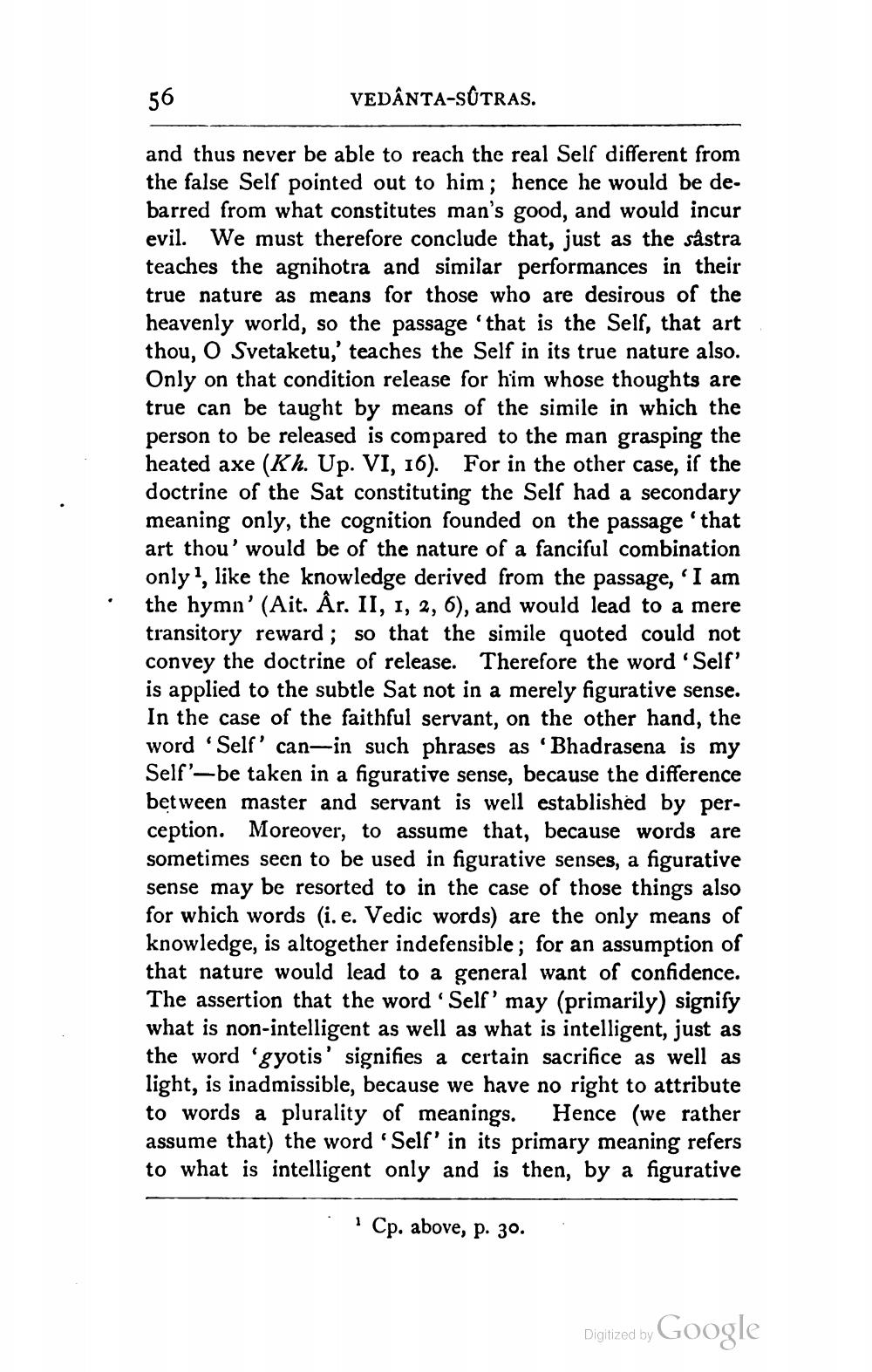________________
56
VEDÂNTA-SÛTRAS.
and thus never be able to reach the real Self different from the false Self pointed out to him; hence he would be de. barred from what constitutes man's good, and would incur evil. We must therefore conclude that, just as the sästra teaches the agnihotra and similar performances in their true nature as means for those who are desirous of the heavenly world, so the passage that is the Self, that art thou, O Svetaketu,' teaches the Self in its true nature also. Only on that condition release for him whose thoughts are true can be taught by means of the simile in which the person to be released is compared to the man grasping the heated axe (Kh. Up. VI, 16). For in the other case, if the doctrine of the Sat constituting the Self had a secondary meaning only, the cognition founded on the passage that art thou' would be of the nature of a fanciful combination only 1, like the knowledge derived from the passage, 'I am the hymn' (Ait. År. II, 1, 2, 6), and would lead to a mere transitory reward; so that the simile quoted could not convey the doctrine of release. Therefore the word 'Self' is applied to the subtle Sat not in a merely figurative sense. In the case of the faithful servant, on the other hand, the word 'Self' can—in such phrases as 'Bhadrasena is my Self'-be taken in a figurative sense, because the difference between master and servant is well established by perception. Moreover, to assume that, because words are sometimes seen to be used in figurative senses, a figurative sense may be resorted to in the case of those things also for which words (i.e. Vedic words) are the only means of knowledge, is altogether indefensible; for an assumption of that nature would lead to a general want of confidence. The assertion that the word 'Self' may (primarily) signify what is non-intelligent as well as what is intelligent, just as the word 'gyotis' signifies a certain sacrifice as well as light, is inadmissible, because we have no right to attribute to words a plurality of meanings. Hence (we rather assume that) the word 'Self' in its primary meaning refers to what is intelligent only and is then, by a figurative
'Cp. above, p. 30.
Digitized by
Digized by Google




